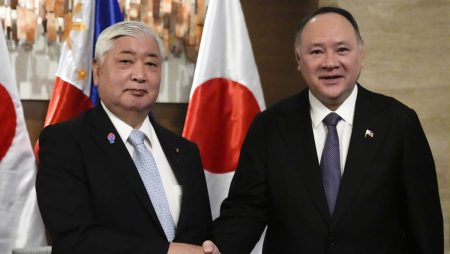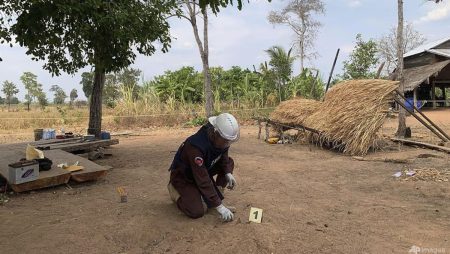The ongoing political crisis in South Korea has created a leadership vacuum at a critical juncture in global affairs, casting a shadow over the country’s ability to address pressing domestic and international challenges. This internal instability weakens South Korea’s capacity to effectively navigate a complex geopolitical landscape fraught with escalating tensions and potential conflicts. The timing couldn’t be worse, with various international flashpoints demanding attention and resources. The war in Ukraine, the ongoing crisis in the Middle East, the reconstruction efforts in Syria, and rising tensions in the South China Sea all require careful diplomatic maneuvering and strategic responses. This leadership void undermines South Korea’s ability to contribute constructively to these global issues and safeguard its own national interests.
The international community is facing a multitude of interconnected challenges, many of which directly impact South Korea’s security and economic well-being. The war in Ukraine has destabilized the global order and created ripple effects across economies worldwide. The Middle East remains a volatile region, with ongoing conflicts and humanitarian crises demanding international attention. The rebuilding of Syria presents a complex and long-term challenge, requiring international cooperation and substantial resources. Simultaneously, China’s assertive military actions in the waters around Taiwan and the South China Sea are stoking regional tensions and raising concerns about potential conflict. These global developments require strong and decisive leadership from key players like South Korea, a role that is compromised by the current political turmoil.
Adding to the complexity of the situation is North Korea’s unpredictable behavior, with the constant threat of missile launches looming over the Korean Peninsula. The potential for renewed provocations from Pyongyang adds another layer of uncertainty to the region’s security dynamics. The escalating skirmishes between China and the Philippines in the South China Sea further complicate matters, highlighting the fragility of peace and stability in the region. These interconnected challenges underscore the need for a stable and effective government in South Korea, capable of responding to these threats and contributing to regional stability. The current leadership vacuum hampers South Korea’s ability to play this vital role.
The timing of South Korea’s political crisis is particularly unfortunate given the emerging anti-American alliance between China and Russia, both of which seek to challenge the existing global order and expand their regional influence. This growing partnership poses a direct challenge to US interests and requires a coordinated response from its allies, including South Korea. A weakened South Korea is less able to contribute effectively to this effort, further complicating the United States’ strategic positioning in the region. The political instability in Seoul creates an opportunity for China and Russia to exploit the situation and potentially undermine US influence in the region.
The deepening relationship between North Korea and Russia presents another significant challenge for South Korea. Russia’s potential transfer of advanced military technology to North Korea in exchange for military support in Ukraine raises serious concerns about regional security. This development could further destabilize the Korean Peninsula and increase the threat posed by North Korea. A weakened South Korean government is less equipped to handle this evolving security threat, further highlighting the negative consequences of the current political crisis. The potential for an arms race in the region fueled by this burgeoning alliance underscores the urgency of resolving the political impasse in Seoul.
Compounding these challenges is the prospect of Donald Trump’s return to the White House and the potential for renewed trade tensions between the US and China. These trade wars could have significant ramifications for South Korea’s economy, which is heavily reliant on trade with both countries. A strong and stable government is essential for navigating these complex economic challenges and minimizing the negative impact on South Korea’s economic growth. The current political crisis undermines South Korea’s ability to effectively manage these economic risks, further exacerbating the negative consequences of the leadership vacuum. The convergence of these international and domestic challenges underscores the critical need for a swift resolution to the political crisis and the restoration of strong leadership in South Korea.










